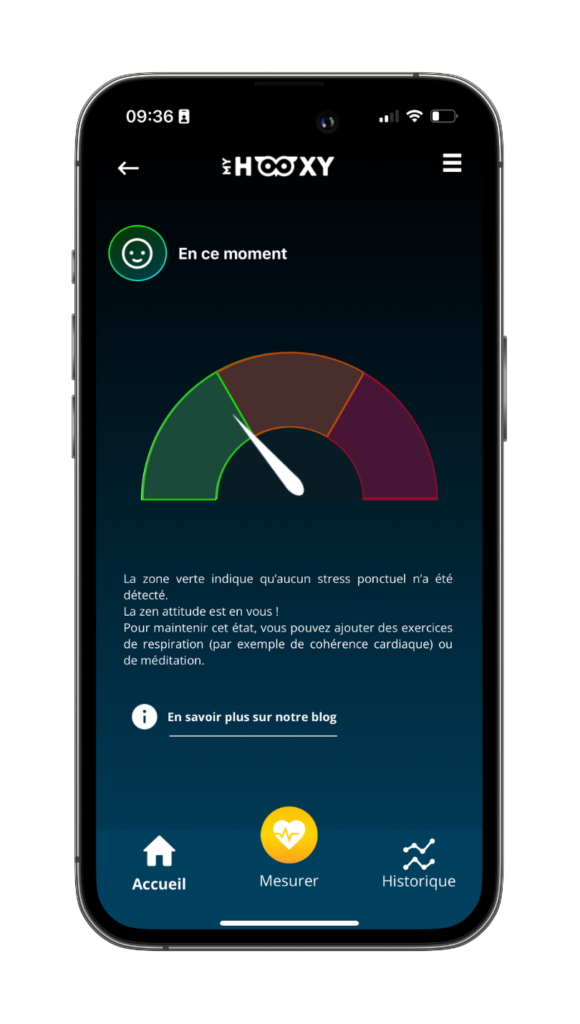
Current stress
You’ve probably heard the saying that a healthy mind can only be found in a healthy body. Well, unfortunately, it works both ways. A healthy body also needs a healthy mind. That’s what we’re going to look at in this article. The subject of this article is stress, and we’re going to take a look at how stress is a scourge for modern women and men. Then we’ll look at the consequences for the body, before proposing solutions to reduce or even overcome it.
Stress: a major problem:
In today’s world, stress is a real social problem. So common is this tension that 9 out of 10 French people say they have difficulty coping with stress. We live in a society where we are constantly solicited, and the digital age accentuates this phenomenon with the overabundance of constant information directed at individuals. This is known as infobesity, a term that refers to the overload of information digested by individuals, and draws a parallel with the practice of force-feeding. Haven’t you ever felt a slight twinge of stress when opening your mailbox filled with unconsidered mail? If so, you’re probably one of the 9 out of 10 French people affected by stress.

We might then tell ourselves that it’s not such a big deal, that it’s “just” an unpleasant, fleeting feeling. Unfortunately, it’s not that simple. If stress isn’t managed properly, it can become chronic, and that’s only the first step. Indeed, stress is the cause of a large number of pathologies ruining the daily lives of many people. Anxiety, depression and burn-out can be the result of unrecognized and unmanaged chronic stress. Burn-out manifests itself as physical, emotional and mental exhaustion resulting from too intense and prolonged an investment in the work situation. The professions most affected by this pathology are farmers, shopkeepers and company directors, managers and teachers, and the medical profession.
Knowing this, it would be interesting to look at the physiological question. If stress is a problem for so many people, it must mean that there are consequences for the way the body functions. So let’s take a look at the effects of stress on our bodies and our health – because, let’s not forget, well-being and health are closely linked.
The effects of stress on the body :
Physiologically, stress is the result of the body’s adaptation to external situations, and is therefore originally a natural mechanism. In 1935, Hans Seyle described the three phases of the body’s reaction to stress: alarm, resistance and exhaustion. This is known as the general adaptation syndrome. We can see that stress causes upheavals in the way the body functions, because adaptation means change. This action of sudden change in the body, in high repetition and over long periods of time, is bound to exhaust the organism.
During the alarm phase, the body prepares for fight or flight, so the sympathetic nervous system, described in this article, is running at full speed. Numerous hormones such as adrenalin are secreted in high doses, resulting in increased heart rate and blood pressure.
When the stress situation persists, the body enters a resistance phase, secreting hormones that raise blood sugar levels. These are glucocorticoids. This hormone keeps energy levels high throughout the body.
Finally, the organism may enter the third phase, exhaustion.The brain is no longer able to regulate the production and circulation of hormones, resulting in bodily dysregulation and exhaustion that can have negative consequences for the individual’s health.
How to combat stress:
Most people with stress-related problems tend to use addictive and apparently calming substances. In fact, these products provide only an illusion of relief, with a very short-term effect, as in the case of tobacco and nicotine. Coffee, alcohol and even drugs are among the substances that a person prone to stress may be tempted to consume. Although these products are not a viable solution to stress, there are a number of techniques and good habits that enable the body to regulate its reactions to stressful contexts and situations.
The practice of mindfulness meditation is a highly effective method of relieving stress and ruminations. This type of meditation involves putting aside heavy, negative or even useless thoughts by focusing attention on the senses. Meditation is therefore based on sensory observation and inner and outer acceptance of the current state of things. It’s essential never to judge your meditation, as this would disrupt it. Meditation doesn’t have to be perfect; it’s not sport.
Cardiac coherence is the practice of focusing on breathing. The aim is to create a synchronized effect between brain activity, through conscious breathing, and heart rhythm. This rhythmic breathing then regulates the activity of the autonomic nervous system, which manages organ function. For more information on the autonomic nervous system, see this article. There are several methods of cardiac coherence, the most common of which is called 3 6 5. This consists of practicing the exercise 3 times a day, performing 6 breathing cycles per minute over a period of 5 minutes. This very simple and effective exercise can be performed with the help of MyHooxy, which offers modular cardiac coherence exercises providing a large number of quantified results in real time during measurement.
Cutting out screens for 15 to 20 minutes and taking a micro-nap can also help reduce stress. Screens are a stimulant that promotes stress, especially if we link this to the problem of information overload mentioned above.
Taking care of your sleep is also an essential habit in the fight against stress. Sleep must be sufficiently abundant, but it must also be regular. The body needs to rest at set times for optimal recovery. It’s also important to remember that turning off all screens at least one hour before going to bed ensures a faster, deeper and more restorative sleep.
Taking part in physical and sporting activities for at least 30 minutes a day also helps relieve stress, as physical effort allows you to let off steam and release tension by converting it into effort. It’s liberating, and helps relieve stress and anxiety.
It may seem surprising, but laughter is also an excellent stress reducer. In fact, even if it’s forced, laughing for 10 minutes or so during the day fools the brain, making it easier to avoid stress.
Last but not least, you should never neglect your own pleasures. Listening to music, indulging in your favorite pastime and socializing with friends and family in a pleasant atmosphere will help you to get away from everyday worries and relieve stress.
Don’t forget that health and well-being are closely linked. With MyHooxy, your well-being companion, you’ll be able to keep control not only of your current stress levels, but also of your ability to recover and accelerate.